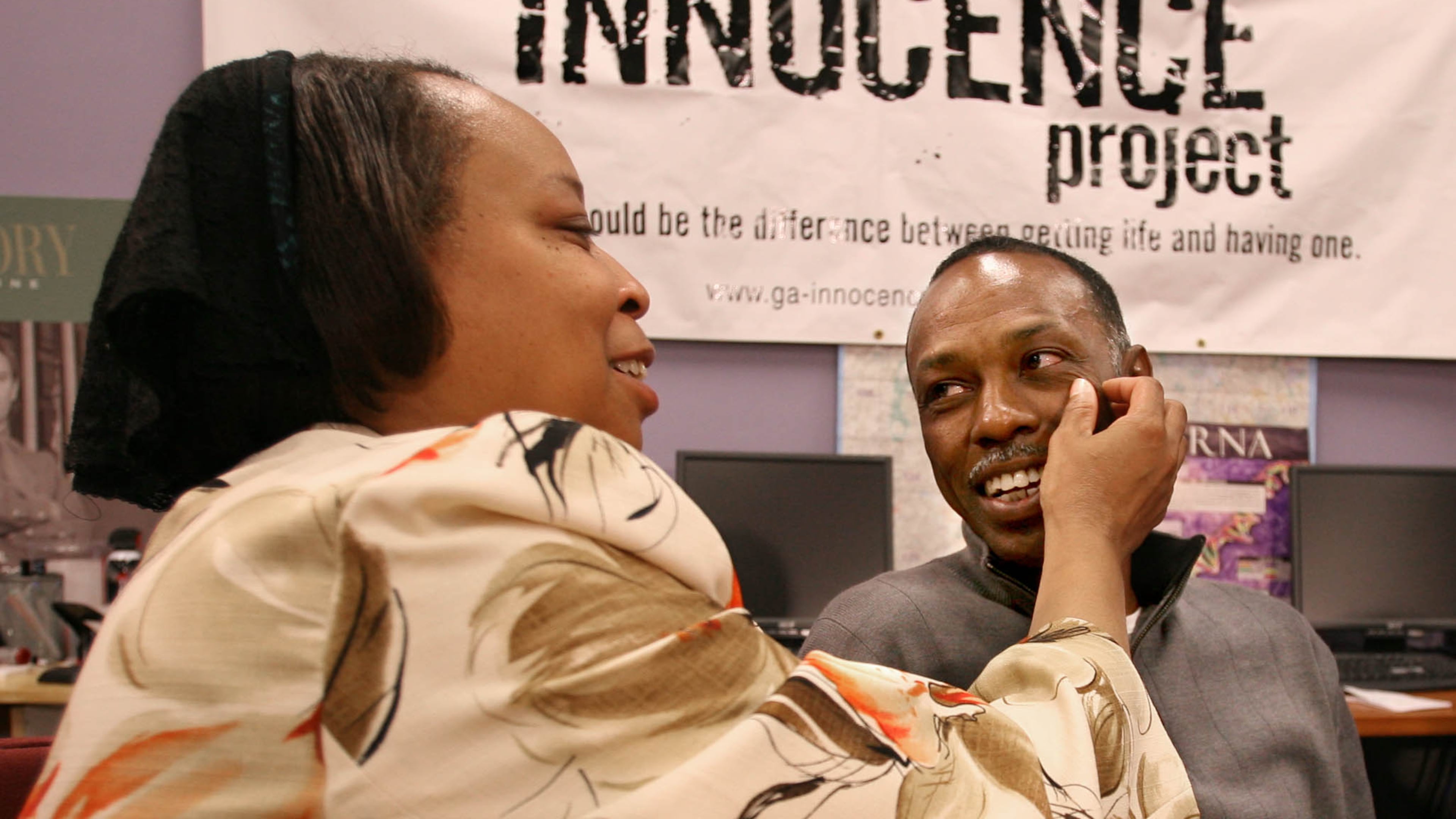What is the Georgia Innocence Project?

The Georgia Innocence Project is an independent, nonprofit corporation whose mission is to correct and prevent wrongful convictions in Georgia.
The organization’s attorneys and staff do not charge for their service, and they collaborate with a network of pro bono lawyers, volunteers and students. They investigate criminal convictions where modern DNA testing was not available at the time of the trial.
The project has a strict case acceptance criteria, one example being the case of Dennis Perry, imprisoned for nearly 20 years after being convicted of a 1985 southeast Georgia, African American church shooting.
Erik Sparre, a suspect whom police dropped from their investigation in 1986 based on his alibi, has recently been linked to the crime scene by DNA, according to a court filing by the Georgia Innocence Project and Atlanta's King & Spalding law firm.
The attorneys decided to do a DNA test after The Atlanta Journal-Constitution uncovered problems with Sparre’s alibi. King & Spalding is working pro bono on this case.
» SPECIAL PRESENTATION: "The Imperfect Alibi"
» FULL COVERAGE: The Rising Daughter investigation
Perry was never linked to the crime by physical evidence and maintained his innocence. His motion for a new trial, which is before Glynn County Superior Court, argues that Perry likely would’ve never been tried if the DNA results were available before.
Perry, 58, hopes to finally be set free, and the Georgia Bureau of Investigation has officially reopened the case.
» MORE: DNA points to former suspect in 1985 church murders
» MORE: GBI reopens probe into church murders after new DNA evidence emerges
The organization cites studies showing 4% to 6% of men and women in prison are innocent of the crimes for which they are imprisoned. In Georgia, the nonprofit estimates at least 2,100 people are incarcerated in prison for crimes they did not commit.
Many factors, according to the nonprofit, contribute to these convictions, including eyewitness misidentification, official misconduct, misapplied forensic science, incentivized witnesses and false confessions. Overlaying other wrongful convictions are human factors and systems such as cognitive and racial bias and discrimination, inadequate public defense and mass incarceration.
The group played a major role in freeing Kerry Robinson, who spent nearly 20 years in prison after being wrongfully convicted of rape.
» MORE: DNA analysis frees Georgia man wrongfully convicted of rape
The 44-year-old had been convicted in 2002 of breaking into a woman’s home in Moultrie and attacking her.
The chief evidence against Robinson was the fact the “ringleader” of the break-in claimed Robinson was part of the rape. Testimony from a GBI analyst falsely suggested a mixture of DNA in the rape kit very likely contained Robinson’s.
Robinson maintains the ringleader lied to authorities as revenge because Robinson had reported him to the police in another case.
After reviewing the case, Southern Judicial Circuit District Attorney Brad Shealy, who wasn’t involved in the prosecution, agreed to Robinson's release.
» PHOTOS: The Georgia Innocence Project
The Georgia Innocence Project has accepted only a small fraction of the more than 7,600 requests for help it has received. So far, the organization has exonerated eight men who were wrongfully imprisoned for a combined total of 139 years.
The nonprofit also works with exonerees to connect them with resources to reintegrate into society and to create a supportive community.
» MORE: Exonerated man chooses forgiveness over bitterness
Calvin Johnson spent 16 years in prison for a crime he didn’t commit, the 1983 rape of a College Park, Georgia, woman. Johnson, a Clark University graduate, was named as a suspect. He became a suspect because of an earlier rape charge that was dismissed.
Johnson’s hair did not match a hair found at the scene, and he didn’t fit the description the victim offered immediately after the crime, yet he was convicted in Clayton County and sentenced to life plus two concurrent 15-year sentences.
Johnson became the first man in Georgia exonerated because of DNA evidence, and his case inspired the founding of the Georgia Innocence Project.
Johnson has since married and started a family, built a house and pursued a career. He is also a founding board member of the Georgia Innocence Project and sits on the board of the New York Innocence Project, working to free others who have been wrongfully imprisoned.


